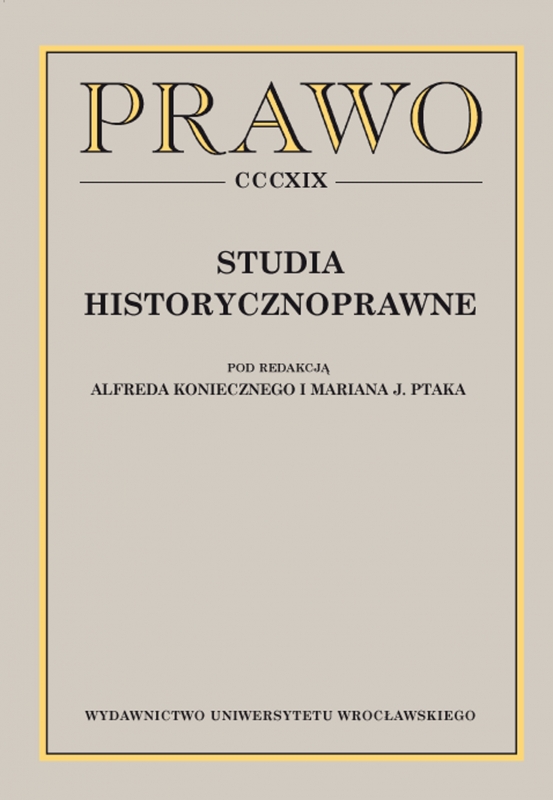

Artykuły

The German Frei von Dehrn family of free knights in the service of the Counts of Nassau. A historical-legal and genealogical study
The author presents the history of the Frei von Dehrn family, which lived in Hesse from the early Middle Ages until the first half of the 18th century. The family derived its origins from a father enigmatic knight, Dietger of Dehrn 10th century, ancestor also of the chivalrous family of Der living in Meissen, Silesia and Poland the last two lines surviving to this day and the Austrian family of von Puchheim which died out in the 18th century. Paradoxically, although the Frei von Dehrn family belonged to the German free knighthood class, it joined the service of the Counts of Nassau, who ruled part of Hesse. However, this is only seemingly a contradiction, because in some estates a family could be subordinated directly to the emperor and in others its liege lords were the rulers of the country in which it lived. This subordination to the von Nassau family lasted for hundreds of years and passed from one line of the family to another. The family itself contributed to the extinction of its main line by murdering the last heir, but the takeover of leadership by a younger line did not mean the loss of the Frei von Dehrns’ political stature, as they assumed the highest office in the county, that of the Amtmann, and then in the duchy, when the von Nassau-Diez family became the von Nassau-Oranje family, and from that moment until their extinction in the 18th century the Frei von Dehrns served the rulers of the Netherlands, sovereigns of Hesse-Nassau.
Die Familie der freien Ritter des Reiches Frei von Dehrn im Dienste der Grafen von Nassau. Ein rechtshistorisches und Ahnenstudium
Der Autor schildert die Geschichte der Familie Frei von Dehrn, die in Hessen seit dem frühen Mittelalter bis in die 1. Hälfte des 18. Jahrhunderts aktiv war. Die Familie stammte von einem gewissen Ritter Dietger von Dehrn 10. Jh., dem Vorfahren der ritterlichen Familie von Der auch in Meißen, Schlesien und Polen die Nachkommen der letzten zwei Linien leben bis heute, und der österreichischen Familie von Puchheim diese Linie erlosch im 18. Jh.. Im Falle der Familie Frei von Dehrn beobachtet man ein Paradox, eine Familie, die als freie Ritter des Reiches galt, begab sich in die Dienste der Grafen von Nassau. Der Widerspruch ist ein scheinbarer, denn die Familie auf manchen Gebieten direkt dem römischen Kaiser untertan, und auf den anderen Vasall des Herren sein konnte, dessen Land sie bewohnte. Diese Abhängigkeit von der Familie von Nassau dauerte hunderte von Jahren und ging von einer Linie der Familie auf die andere über. Zum Erlöschen ihrer Hauptlinie hat die Familie selbst beigetragen, als sie den letzten Erben ermordete. Die Übernahme der Herrschaft durch die jüngere Linie bedeutete jedoch keinen Verlust der politischen Bedeutung durch die Familie Frei von Dehrn, sie übte das Amtmann Amt in der Grafschaft und dann in dem Herzogtum aus, als die Familie von Nassau-Diez zur Familie.